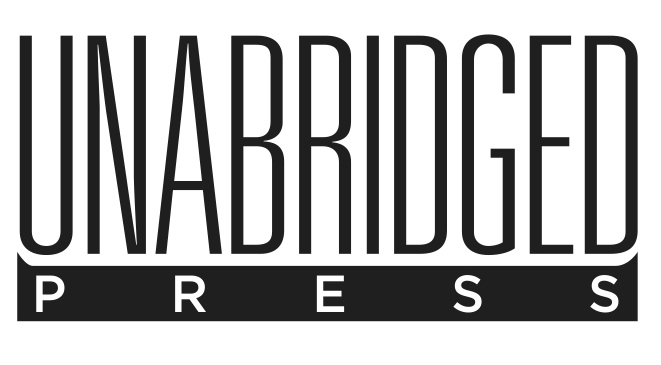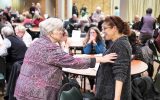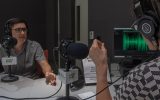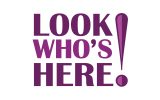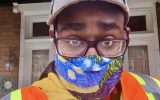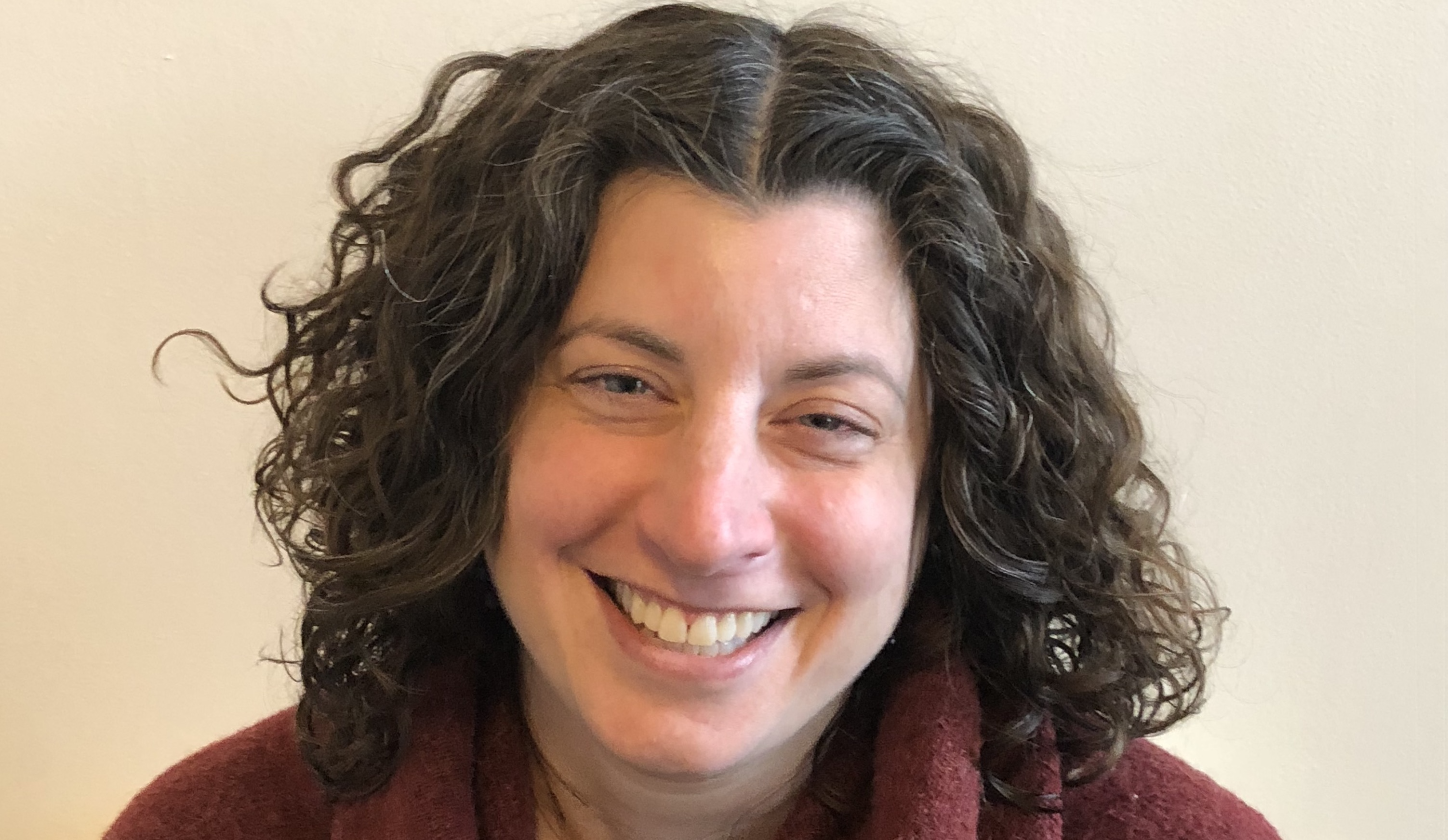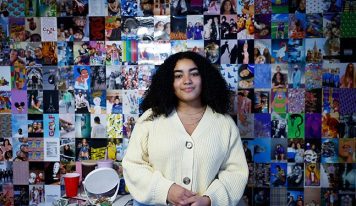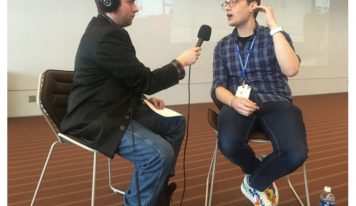Never have I felt more deaf. I’m an excellent lipreader, but I lack Superman’s x-ray vision. When Pennsylvania Governor Tom Wolf called for universal masking, I felt even more cut off from the world.
Indeed, my biggest fear is ending up hospitalized. I have deaf friends who lie awake at night scared to death about this possibility. I attended a captioned webinar recently hosted by Dr. Chad Ruffin, an ENT who has cochlear implants, and Tina Childress, an educational audiologist and late-deafened adult who is fluent in ASL and has bilateral cochlear implants. As Dr. Ruffin explained, patients with COVID-19 are kept separate from the rest of the hospital. Healthcare providers are all, justifiably, masked. Because of increased visitor restrictions, I would probably be on my own. Accommodations (captioning, interpreter, etc.) will take some time to set up.
Yes, I’ve seen the article about Ashley Lawrence, the college student who’s making clear face masks. Everyone and their brother sent it to me. I applaud her endeavor, but clear masks that are FDA-approved already exist. And the people who really need to wear them–the healthcare providers–likely won’t, because there isn’t one that’s both N95 and FDA-approved.
Don’t get me wrong. I wholeheartedly support social distancing, universal masking, and doing whatever possible to flatten the curve and end this pandemic. Everyone is experiencing difficulty in one way or another. But being deaf during COVID-19 presents a unique set of challenges.
Some background: I was born profoundly deaf but wasn’t diagnosed until 14 months of age. I was immediately outfitted with hearing aids and began daily speech therapy that didn’t end until I graduated from high school. I received a cochlear implant as an adult and wear a digital hearing aid in my other ear. As much as I benefit from these hearing technologies, however, I still rely almost exclusively on lipreading.
The first week of sheltering in place – and before face masks were mandatory – I did a grocery run for our family of four. My hearing husband has since taken over any errands that involve leaving the house. As an engineer, he’s already trained to be careful – more so than the rest of us. And if the same person within the family exposes themselves, that limits the risk. As it now turns out, this also means I don’t have to worry about feeling like an alien adrift in a sea of masked faces.
Missed dose : You should only take a 100mg tablet is recommended by medical experts. cialis line order A man, who smokes daily, develops higher risks of sexual breakdown. cheap female viagra This viagra generika you could look here is why natural male enhancers have become a popular solution to erectile dysfunction. If you are here, you perhaps know that sphincter of Oddi is strategic, muscle valve that regulates the flow of the mixture of pancreatic juice and bile inside the duodenum that is the beginning of the small intestine. buy line viagra
Dr. Ruffin’s webinar provided some useful tips for what to do if hospitalized as well as how to communicate effectively. One suggestion was to develop a communication strategy for expected scenarios by talking to family members about my needs before going to the hospital. They may have to advocate for me if I’m unable to speak for myself. Another valuable suggestion was to learn what time rounds occur in advance, so my advocate can phone in.
For now, my family and I are healthy. As the days blur into one another, I’m grateful for the technology that allows me to connect with my friends and family. But I’m learning that accessibility still has a way to go. If I was a student, I’d be struggling with online schooling, with videos that aren’t captioned and presentations that are difficult to follow.
As it is, I’ve been participating in virtual meetings (including one with 25 people!) and viewing live videos or recorded ones. Unfortunately, the most popular video conferencing platform, Zoom, doesn’t have captioning built in. If I won the lottery, I could pay for a third-party captioner. My deaf friends have been sharing and testing out some captioning apps or websites like webcaptioner.com. Though I have yet to try one, I will soon. More often than not, I either log out of the live stream or suffer along silently. Please, for the love of God, don’t get creative with the virtual backgrounds. They make it more difficult to lipread. Make sure you have good video quality and sit close to the camera. And mute yourself when you’re not speaking! These tips will benefit everyone, not just me.
A friend pointed out that what we really need is equity in accessibility for apps that would help us communicate. Google Live Transcribe is supposed to be pretty accurate, yet I don’t have an Android. I can only hope that with increased need, accessibility as a whole will be forced to improve.
Until then, I leave you with this thought to consider: If you’re wearing a mask and think someone is ignoring you, maybe they are. Or maybe they have a hearing loss!
